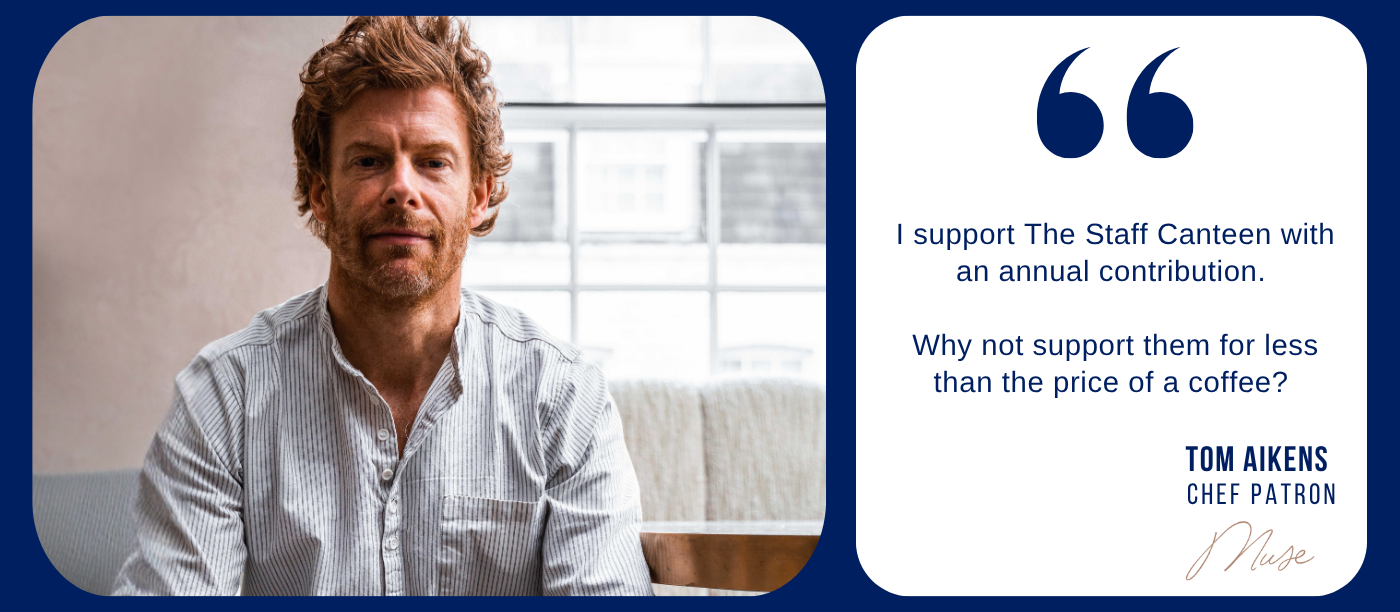is largely irrelevant. Environmental ignorance is shown by consumers eating vegetables out of season and having a penchant for products that require land, water and feed in vast quantities.

A number of chefs are bucking the trend and have been pioneers of environmentally-friendly practices both in and out of the kitchen. Take
Simon Rogan, who in recent years has added a 15 acre organic farm to his portfolio of restaurants in Cartmel and encourages the use of foraging.
There is a strong emphasis on vegetables on his menus, and he boasts that they can be served to customers less than an hour after harvesting.
Or
Alex Atala, the only chef ranked on
Time's list of 100 most influential people 2013. He founded The ATÁ Institute in 2012 which helps to encourage sustainable farming and cultivation practices in Brazil’s trouble-hit Amazon regions.
Chef Simon Rimmer, a presenter of Something for the Weekend and regular guest on Saturday Kitchen, is a strong advocate of all things vegetarian and his restaurant Greens, in the suburbs of Manchester, has been serving vegetarian food since its opening in 1990, putting the foodstuffs that would traditionally accompany meat dishes at the centre of the plate.
This is one of the main problems in society, that the principle element in Sunday roasts, Christmas dinners, and Thanksgiving celebrations is the joint of meat. Until this changes, the risk to man and planet will continue to prevail.
Yet this has not stopped other chefs trying to catalyse a vegetarian revolution.
Eddie Shepherd has made a name for himself from being innovative with technology and vegetarian cooking, proving that there is appetite for such cuisine, and his blog makes this readily available to the general public. Making vegetables more exciting and attractive is certainly one way to coax in meat lovers and get them to leave behind the steak knives.
 Michael Wignall
Michael Wignall at The Latymer offers a ten course vegetarian tasting menu and a set menu at lunch and evenings, and he asserts that there is plenty of demand for this £105 option. Similarly, a whole host of high profile cooks are now creating fascinating vegetarian tasting menus, which is not simply an ephemeral gimmick.
Bruno Loubet,
Steve Drake and
Simon Hulstone also form the start of an ever increasing list.
How refreshing is it that Noma, twice winner of
Restaurant magazine’s Best Restaurant in the World, serves a 20 course meal with little or no meat dishes, and chef
René Redzepi has won copious accolades for his work.
If ending your relationship with meat sounds premature then consider alternatives such as mussels which cost the environment a paltry 250g of CO2 per kilo but still have all the health benefits that the other meats contain and can be found on most menus.

Artificially-grown meat is another potential sustainable protein source, although it is a long way off becoming commercial, for production and social reasons. Insects too, but the issue of their unappetising nature for most people does not need explaining.
The debate about the health pitfalls and environmental predicament caused by the meat industry will rage for years to come. Whilst it remains an individual’s decision to become a vegetarian, it requires a global push to make eating meat a sustainable practice.
If you are thinking about trying vegetarian food or if you are already a veggie and would like to know where to go, then we have offered you 5 veggie restaurants that we think you should visit.



 There are many vegetarians who steer clear of meat purely because of the negative environmental impact of raising livestock; a third of the planet’s landmass is used for rearing and providing for animals.
Poor management and overgrazing in sub-Saharan Africa has led to irreversible damage and desertification. Whilst in England there is an abundance of green grass for cows’ consumption, in South America the demand for meat has caused the destruction of vast swathes of the rainforest known as the ‘lungs of the planet’ to meet the needs of an ever increasing populace in about Latin America and Europe.
Cows and methane might cause amusement and clichés to be bandied about, but the impact of a single cow on global warming is comparable to that of a family car. An individual adult cow can emit up to 500 litres per day of this highly flammable gas which is 25 times more potent than carbon dioxide.
To sum up, it is estimated that 14.5% of human greenhouse gas emissions come from the rearing, milking, feeding and eating of animals. Imagine the environmental gain if each person were to half their intake of meat.
For a majority of restaurant goers, the contents and provenance of the ingredients on their plate
There are many vegetarians who steer clear of meat purely because of the negative environmental impact of raising livestock; a third of the planet’s landmass is used for rearing and providing for animals.
Poor management and overgrazing in sub-Saharan Africa has led to irreversible damage and desertification. Whilst in England there is an abundance of green grass for cows’ consumption, in South America the demand for meat has caused the destruction of vast swathes of the rainforest known as the ‘lungs of the planet’ to meet the needs of an ever increasing populace in about Latin America and Europe.
Cows and methane might cause amusement and clichés to be bandied about, but the impact of a single cow on global warming is comparable to that of a family car. An individual adult cow can emit up to 500 litres per day of this highly flammable gas which is 25 times more potent than carbon dioxide.
To sum up, it is estimated that 14.5% of human greenhouse gas emissions come from the rearing, milking, feeding and eating of animals. Imagine the environmental gain if each person were to half their intake of meat.
For a majority of restaurant goers, the contents and provenance of the ingredients on their plate













